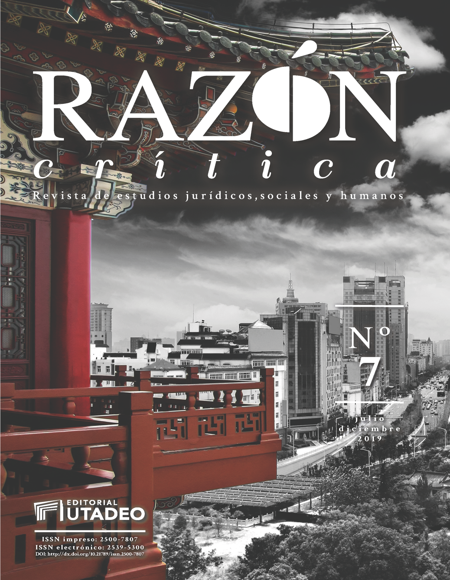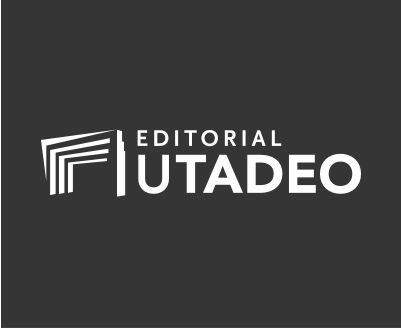Esta obra está bajo una licencia internacional Creative Commons Atribución-NoComercial-CompartirIgual 4.0.
Resumen
Dado que poco más de la mitad de los países que reconocen a Taiwán se encuentran en América Latina y el Caribe, Taipéi y Pekín se han esforzado por lograr reconocimiento diplomático en la región, utilizando programas de ayuda para el desarrollo para conseguir socios diplomáticos. Este artículo analiza las declaraciones de los funcionarios gubernamentales y la literatura anterior, así como los datos cuantitativos de la ayuda para el desarrollo, a fin de evaluar el impacto del programa de ayuda taiwanés en ALC. Se concluye que Taipéi tiene cierta influencia para contener el avance de China en la región, debido a su estatus de país democrático, su historia de desarrollo exitoso y, especialmente, sus fuertes vínculos con Washington. Sin embargo, frente a los renovados esfuerzos de China para imponer su política de “Una Sola China”, las posibilidades de Taiwán de evitar el aislamiento diplomático siguen siendo inciertas.
Citas
Beech, E. (2018). U.S. recalls diplomats in El Salvador, Panama, Dominican Republic over Taiwan. Reuters. Available at: https://www.reuters.com/article/us-usa-china-taiwan/u-s-recalls-diplomats-in-el-salvador-panama-dominican-republic-over-taiwan-idUSKCN1LO00N
Brautigam, D. (2010). China, Africa and the international aid architecture. African Development Bank Group Working Paper, 107.
Butterfield, S. (2004). US development aid--An historic first: Achievements and failures in the twentieth century (vol. 108). Greenwood Publishing Group.
Chan, G. (1997). Taiwan as an emerging foreign aid donor: developments, problems, and prospects. Pacific Affairs, 37-56, doi: https://doi.org/10.2307/2761227
Chang, D. (1965). US Aid and Economic Progress in Taiwan. Asian Survey, 152-160, doi: https://doi.org/10.2307/2642405
Chen, J. (2002). Foreign policy of the new Taiwan: Pragmatic diplomacy in Southeast Asia. Edward Elgar Publishing.
Cheng, T. (1994). Foreign aid in ROC diplomacy. Contemporary China and the changing international community, 170-84.
Chiang, C., & Hsu, E. (2018). U.S. calls for resumption of cross-strait talks. Focus Taiwan. July 25. Available at: http://focustaiwan.tw/search/201807250008.aspx?q=yeh
China's Policy Paper on Latin America and the Caribbean (2008). Available at: http://www.gov.cn/english/official/2008-11/05/content_1140347.htm
Ellis, R. E. (2009). China in Latin America: the whats and wherefores (vol. 46). Boulder, CO: Lynne Rienner Publishers.
Ellis, R. E. (2011). Chinese soft power in Latin America: A case study. National Defense Univ Washington DC.
Ellis, R. E. (2018a). Taiwan's Diplomatic Struggle in Latin America. The News Lens. Available at: https://international.thenewslens.com/article/109817
Ellis, R. E. (2018b). PRC Engagement in Latin America and Implications for Taiwan and the United States. Global Taiwan Brief, 3(12). Available at: http://globaltaiwan.org/2018/06/13-gtb-3-12/
Erickson, D., & Chen, J. (2007). China, Taiwan, and the battle for Latin America. Fletcher F. World Aff., 31, 69.
Esteban, M. (2007). The diplomatic battle between Beijing and Taipei in Latin america and the Caribbean. Chinese (Taiwan) Yearbook of International Law and Affairs, 25(1), 65-88.
Friedman, E. (2007). China's Changing Taiwan Policy. American Journal of Chinese Studies, 119-134.
Gao, C. (2019). China-El Salvador Relationship Wobbles. The diplomat. March 18. Available at: https://thediplomat.com/2019/03/china-el-salvador-relationship-wobbles/
Harold, S., Morris, L., & Ma, L. (2019). Countering China's Efforts to Isolate Taiwan Diplomatically in Latin America and the Caribbean. Rand Corporation, doi: https://doi.org/10.7249/RR2885 Available at: https://www.rand.org/content/dam/rand/pubs/research_reports/RR2800/RR2885/RAND_RR2885.pdf
Her, K. (2012). Delivering Effective Aid, Taiwan Today, December 1, 2012. Available at: https://taiwantoday.tw/news.php?unit=4,29,29,31,45&post=7953
Hernández, J. (2016). China suspends diplomatic contact with Taiwan. New York Times, June 25.
Herrera, J. (2019) The important role TaiwanICDF plays in Taiwan’s diplomacy, Taipei Times, May 3. Available at: http://www.taipeitimes.com/News/feat/archives/2019/05/07/2003714685
Herrera, J. (2019). The Nicaraguan loan controversy. Taipei Times. March 3. Available at: http://www.taipeitimes.com/News/editorials/archives/2019/03/03/2003710735
Hickey, D. (1994). Coming In From The Cold-Taiwan Return To International Organizations. Issues & Studies, 30(10), 94-107.
Hsieh, C. C. (1985). Strategy for survival: The foreign policy and external relations of the Republic of China on Taiwan, 1949-79. Sherwood Press.
Hsieh, C. C. (1996). Pragmatic diplomacy: foreign policy and external relations. Take-off for Taiwan, 66-106.
Hsu, S. (2018). Nicaragua hails programs moved from El Salvador. Taipei Times. Available at: http://www.taipeitimes.com/News/taiwan/archives/2018/10/24/2003702937
ICDF (2017). 2017 Annual Report. Available at: http://www.icdf.org.tw/public/MMO/icdf/2017%20Annual%20Report.pdf
ICDF (2019). International Cooperation and Development Fund. Available at: http://www.icdf.org.tw/
Kenney, M. (2004). Locating global advantage: industry dynamics in the international economy. Stanford University Press.
Koleski, K, & Blivas, A. (2018). China’s Engagement with Latin America and the Caribbean. USCC. Available at: https://www.uscc.gov/sites/default/files/Research/China%27s%20Engagement%20with%20Latin%20America%20and%20the%20Caribbean_.pdf
Lee, W. C. (1993). Taiwan's Foreign Aid Policy. Asian Affairs, 20(1), 43-62, doi: https://doi.org/10.1080/00927678.1993.10771147 Retrieved from http://www.jstor.org.ezproxy.uniandes.edu.co:8080/stable/30172174
Lee, W. C. (1994). ROC’s foreign aid policy. In J. C. Hu (ed.), Quiet Revolutions on Taiwan. Republic of China, Taipei: Kwang Hwa Publishing Company, 331-360.
Lee, W. C. (2004). Field of Dreams: An Overview of the Practice and Study of Taiwan. Issues & Studies, 40(3-4), 137-182.
Li, H. (2005). Rivalry between Taiwan and the PRC in Latin America. Journal of Chinese Political Science, 10(2), 77-102, doi: https://doi.org/10.1007/BF02877029
Lin, B. J. (1990). The Republic of China and Africa: a case of positive adaptation. Foreign Policy of the Republic of China on Taiwan: An Unorthodox Approach. New York: Praeger.
Lin, T. C. (1995). The ROC’s Foreign-Aid And The Southward Policy. Issues & Studies, 31(10), 1-20.
Lin, T. C. (1996). Taiwan's foreign aid: an instrument of foreign policy. New Zealand Journal of East Asian Studies, 4, 58-80.
Lin, T., & Lin, J. (2017). Taiwan’s Foreign Aid in Transition: From ODA to Civil Society Approaches. Japanese Journal of Political Science, 18(4), 469-490, doi: https://doi.org/10.1017/S1468109917000135
Liu, P. (2009). Planting Rice on the Roof of the UN Building: Analysing Taiwan's “Chinese” Techniques in Africa, 1961–present. The China Quarterly, 198, 381-400, doi: https://doi.org/10.1017/S0305741009000368
Lu, I., & Hsiao, S. (2017). Taiwan force for good in world, US official says. Taipei Times. Available at: http://www.taipeitimes.com/News/taiwan/archives/2018/04/28/2003692139
Lynch, D. (2011). Searching for Taiwan’s Plan B’. The Diplomat, 23.
Maggiorelli (2017). Chinese Aid to Latin America and the Caribbean: Evolution and Prospects. Revista Internacional de Cooperación y Desarrollo, 4(2), 28-50. Available at: http://www.revistas.usb.edu.co/index.php/Cooperacion/article/download/3335/2742
Malkin, E. (2017). Taiwan Works to Keep Its Central American Friends (Among Its Few). New York Times. January 13, 2017. Available at: https://www.nytimes.com/2017/01/13/world/americas/taiwan-president-tsai-central-america-china.html
Manthorpe, J. (2016). Forbidden nation: A history of Taiwan. St. Martin’s Griffin.
Menchu, S. (2017). Taiwan’s Central American Allies Coy on Panama’s Beijing Embrace. Reuters. June 13, 2017. Available at: https://www.reuters.com/article/us-panama-china-centralamerica/taiwans-central-american-allies-coy-on-panamas-beijing-embrace-idUSKBN1942P9
Ministry of Foreign Affairs. (2016). Foreign Policy Guidelines. Available at https://www.外交部.tw/en/cp.aspx?n=B7411BDCD003C9EC
Ministry of Foreign Affairs. (2019). ROC Embassies and Missions Abroad. Available at https://www.roc-taiwan.org/
Möller, K. (1996). Does flexible diplomacy improve Taiwan’s international status. The International Status of Taiwan in the New World Order: Legal and Political Considerations. Kluwer International Law, London The Hague Boston, 53-62.
Morgan, D. E. (2017). Trade Developments in Latin America and the Caribbean. Washington, DC: Monetary Fund: International Monetary Fund. Available at: https://www.imf.org/~/media/Files/Publications/CR/2017/cr1766-ap-5.ashx
Nicholson, G. (2015). Transport, Logistics and Competitiveness in the Caribbean. Caribbean Journal, September 2015. Available at: https://www.caribjournal.com/2015/09/04/transport-logistics-and-competitiveness-in-the-caribbean/
Ramos, A. (2017). Taiwan Gives Guatemala Over Us$600 Million In Funding. Amandala. August 9. Available at: http://amandala.com.bz/news/taiwan-guatemala-us600-million-funding/
Rich, T., & Dahmer, A. (2017). Taiwan’s Central America Dilemma. Taiwan Sentinel. September 21. Available at: https://sentinel.tw/taiwans-central-america-dilemma/
Rich, T. (2009). Status for Sale: Taiwan and the Competition for Diplomatic Recognition, Issues & Studies, 45(4), 159-188.
Rich, T. (2010). Haitian Disaster Relief: Implications of Chinese and Taiwanese Assistance. The Newsletter, 53(Spring). Available at: https://www.iias.asia/sites/default/files/nwl_article/2019-05/IIAS_NL53_09.pdf
Rubinstein, M. A. (1999). Political Taiwanization and pragmatic diplomacy: The eras of Chiang Ching-kuo and Lee Teng-hui, 1971-1994. Taiwan: A new history, 436-80. Available at: http://faculty.washington.edu/stevehar/Rubenstein%20democratization.pdf
Statement from the Press Secretary on El Salvador (2018). White House. Available at: https://www.whitehouse.gov/briefings-statements/statement-press-secretary-el-salvador/
Sullivan, M., & Lum, T. (2019). In Focus: China’s Engagement with Latin America and the Caribbean. Washington D.C.: Congressional Research Service, 7-5700, April 11. Available at: https://fas.org/sgp/crs/row/IF10982.pdf
Taylor, I. (1998). China's foreign policy towards Africa in the 1990s. The Journal of Modern African Studies, 36(3), 443-460, doi: https://doi.org/10.1017/S0022278X98002857
The Taiwan Loan Controversy: Loan Of US$100 Million Gives Lifeline To Ortega (2019). Qcostarica. March 6. Available at: https://qcostarica.com/the-taiwan-loan-controversy-loan-of-us100-million-gives-lifeline-to-ortega/
Transparency International (2019). Corruption Perception Index (CPI). Available at https://www.transparency.org/cpi2018
Tubilewicz, C. (2007). Taiwan and post-communist Europe: Shopping for allies. Routledge, doi: https://doi.org/10.4324/9780203946978
Tubilewicz, C. (2016). State transformation and the domestic politics of foreign aid in Taiwan. The Pacific Review, 29(1), 45-66, doi: https://doi.org/10.1080/09512748.2015.1066412
Tubilewicz, C., & Guilloux, A. (2011). Does size matter? Foreign aid in Taiwan's diplomatic strategy, 2000–8. Australian Journal of International Affairs, 65(3), 322-339, doi: https://doi.org/10.1080/10357718.2011.563777
Wang, C. (1995). The Republic of China’s Foreign Policy 1949-1988: Factors Affecting Change in Foreign Policy Behaviour. Ann Arbor: University Microfilms International.
Wang, T. Y. (2002). Taiwan's foreign relations under Lee Teng-Hui's rule, 1988-2000. American Asian Review, 20(1), 71.
Wu, L. J. (1995). Does money talk? The ROC's economic diplomacy. Issues & studies, 31(12), 22-35.
Yeh, J. (2019). No El Salvador decision made on possibly resuming ties with Taiwan. Focus Taiwan. March 14. Available at: http://focustaiwan.tw/news/aipl/201903140007.aspx

 PDF (English)
PDF (English)
 FLIP
FLIP












